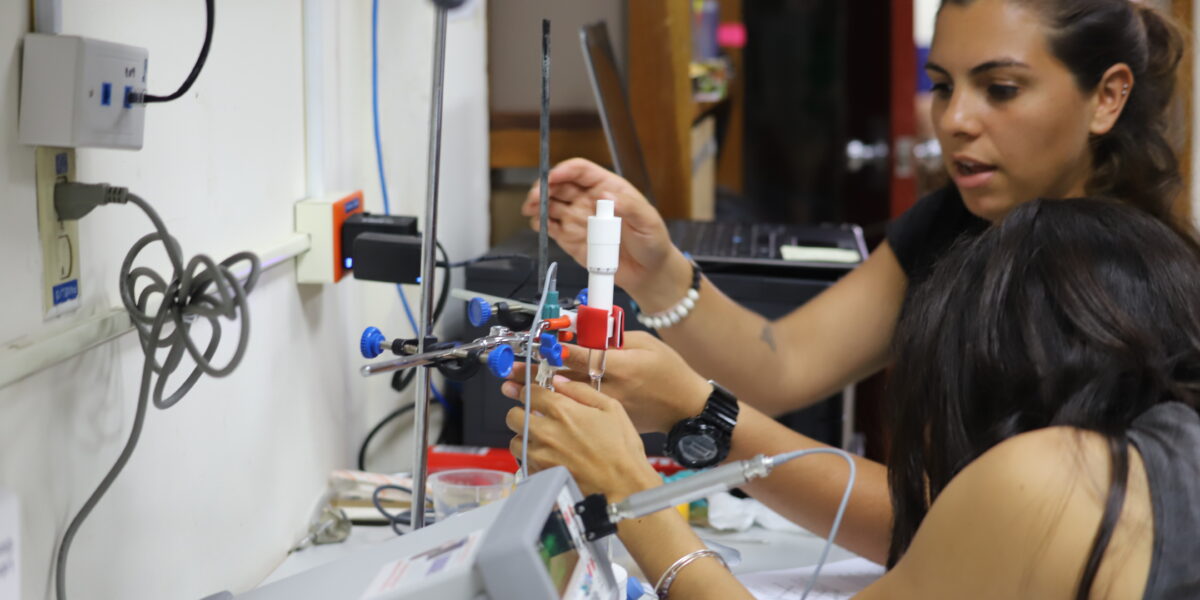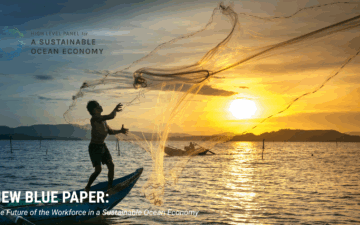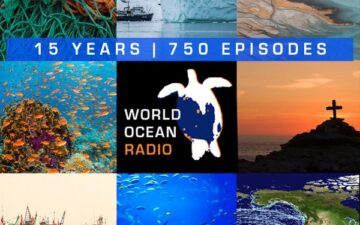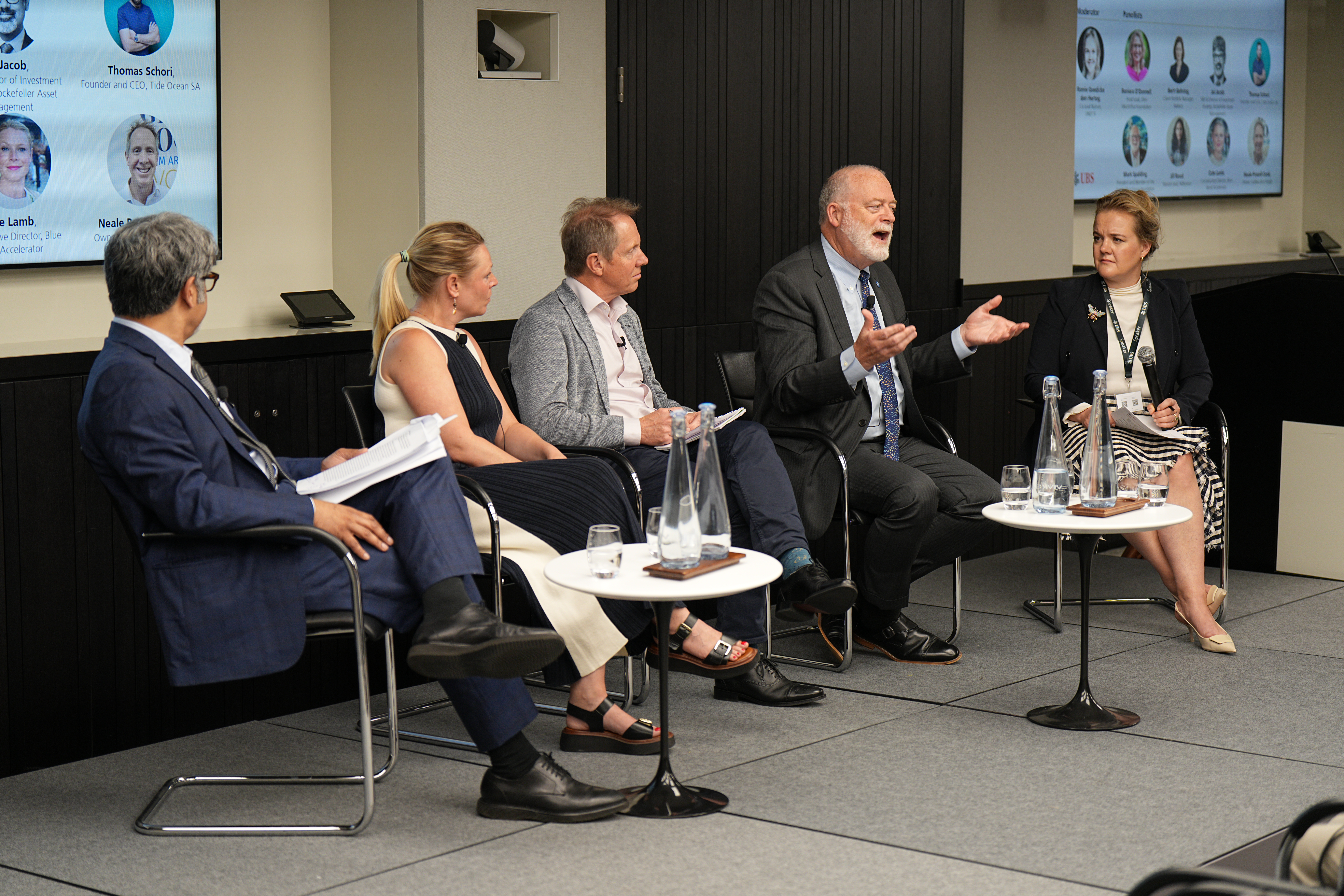In my opening blog of 2021, I laid out the task list for ocean conservation in 2021. That list began with including everyone equitably. Frankly, it is a goal of all of our work all of the time and was the focus of my first blog of the year. The second to-do focused on the concept that “Marine science is real.” This is the second marine science blog, in which we focus on collaborative capacity building.
As I noted in Part 1 of this blog, marine science is a very real part of our work at The Ocean Foundation. The ocean covers more than 71% of the planet, and you don’t have to dig very far to find out just how much we haven’t explored, don’t understand, and need to know to improve the human relationship with our planet’s life support system. There are simple steps that don’t require additional information—anticipating consequences of all of our activities is one of them and stopping known harm is another. At the same time, there is an acute need to take action to limit harm and improve the good, action that must be supported by greater capacity to conduct science across the world.
The International Ocean Acidification Initiative was established to enable scientists in coastal and island nations to monitor their country’s changing ocean chemistry and inform policies to mitigate the adverse effects of a more acidic ocean. The program includes training in the monitoring of ocean chemistry for younger scientists and education for policymakers about ocean chemistry and how changing ocean chemistry might affect their communities. The program also strives to provide the equipment needed to collect and analyze water samples to those who need it. The innovative, yet simple ocean chemistry monitoring equipment can be readily adapted, repaired, and used regardless of the stability of electricity or internet access. While the data can and should be shared globally through the Global Ocean Acidification Observing Network (GOA-ON), we want to ensure that the data is easily collected and readily used in the country of origin. Good policies to address coastal acidification issues must begin with good science.
To further the goal of building marine science capacity across the globe, The Ocean Foundation has co-launched EquiSea: The Ocean Science Fund for All. EquiSea is a platform co-designed through consensus-based stakeholder discussion with more than 200 scientists from around the world. EquiSea aims to improve equity in ocean science by establishing a philanthropic fund to provide direct financial support to projects, coordinating capacity development activities, fostering collaboration and co-financing of ocean science between academia, government, NGOs, and private sector actors, and supporting the development of low-cost and easy-to-maintain ocean science technologies. It is part of the overarching and all-important first task: Including Everyone Equitably.
We are very excited about EquiSeas’s potential to increase marine science capacity where there is not enough, increase our understanding of the global ocean and the life within, and make marine science real everywhere.
The UN Agenda 2030 asks all nations to be better stewards of our planet and our people and identifies a series of Sustainable Development Goals (SDGs) to serve as benchmarks for fulfilling that agenda. SDG 14 is dedicated to our global ocean on which all life on earth depends. The recently launched UN Decade of Ocean Science for Sustainable Development (Decade) represents a commitment to ensuring that nations invest in the science we need to make informed decisions to fulfill SDG 14.
At this point, ocean science capacity is unequally distributed across ocean basins, and is especially limited in coastal regions in lesser developed countries. Achieving sustainable blue economic development requires an equitable distribution of ocean science capacity and coordinated efforts from the scale of international conveners to national governments to individual institutions and NGOs. The Executive Planning Group of the Decade has created a robust and inclusionary framework via a comprehensive stakeholder engagement process.
In order to make this framework operational, multiple groups need to be engaged, and significant funding needs to be mobilized. The Inter-governmental Oceanographic Commission and the Alliance for the Decade play a crucial role in engaging governments and large entities, and in setting the scientific and programmatic goals of the Decade.
There is a gap, however, in providing support directly to on the ground groups in lesser resourced areas – regions where expansion of ocean science capacity is critical to achieving sustainable blue economic development. Many institutions in such regions lack the infrastructure to engage directly in formal UN processes and thus may not be able to access to support that is channeled directly through IOC or other agencies. Flexible, rapid support will be required in order for these types of institutions to support the Decade, and the Decade cannot succeed if such groups are not engaged. As part of our work going forward, The Ocean Foundation will be supporting efforts to fill those funding gaps, to improve targeted investment, and supporting science that is inclusive and collaborative in project design and use.







